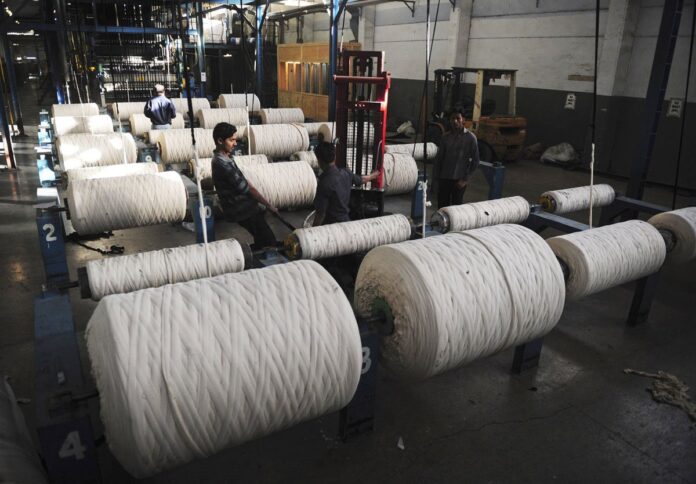About seven million people in the textile industry have been laid off due to low exports and the economic crisis. In a press conference held by textile associations on Monday, its representatives said that the government has no policy to ensure and protect the decaying textile industry.
Due to limitations on Letter of credit (LC), the textile sector has been unable to procure essential raw materials worth as low as $5,000 which has affected consignments as high as $500,000. After the floods, Pakistan lost almost 50% of its cotton crops which resulted in cotton demand to be met with imports as well. Given the reliance on imports, the industry faces constraints towards production and fails to fulfil major international orders.
Profit reached out to Muhammad Naseer Butt, Chairman of Pakistan Hosiery and Manufacturing Association (PHMA) who said that, “the international market hears only one voice that Pakistan is not importing so can’t fulfil the orders. With such a sentiment we can’t promise stability to our international customers.”
But other than import restrictions, the industry has been facing difficulties since 2021. “The industry hasn’t received DLTL (drawback of local taxes and levies) since 2021. In fact, the tax on the industry increased from 3% to 13% in just a year. Such financial crunches are leaving the industry dry,” added Butt.
In November 2022, the industry faced a slump of 19% on Y-o-Y basis to fetch US $ 1.40 billion in revenue, as per the latest provisional data released by All Pakistan Textile Mills Association (APTMA).
Just last month, in December 2022, two major textile industries namely Nishat Chunian and Kohinoor Mills announced a temporary shut down due to market conditions.
APTMA predicted that exports could fall below $1 billion per month in 2023.





Blessings of Level Playing Field